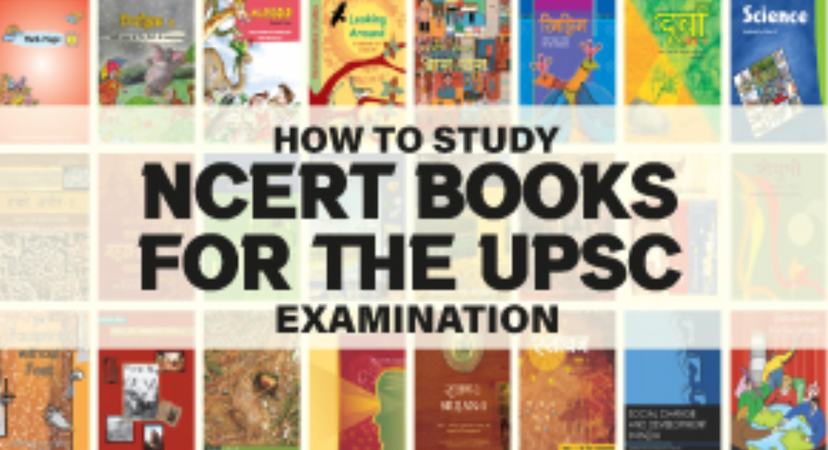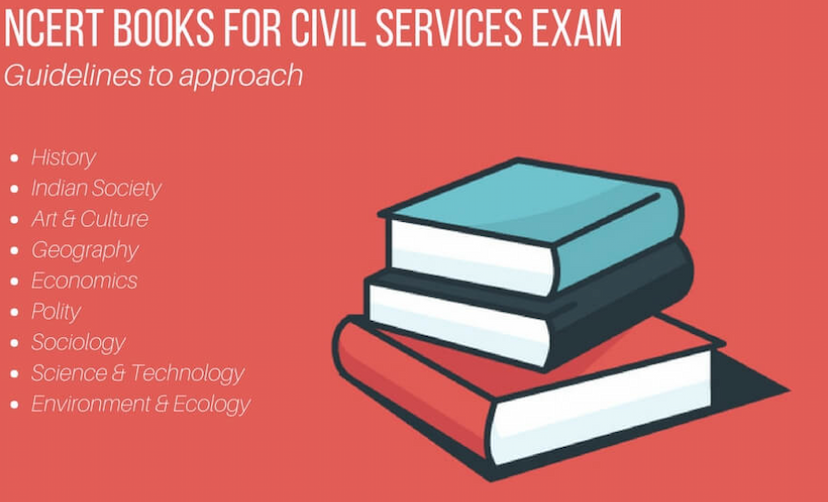NCERT Books for UPSC: The Foundation of UPSC Success

Preparing for the UPSC (Union Public Service Commission) Civil Services Examination is a demanding yet rewarding journey. An indispensable resource for UPSC aspirants is the National Council of Educational Research and Training (NCERT) textbooks.
These meticulously crafted books provide a solid foundation and comprehensive knowledge, making them invaluable tools for success. This article explores the pivotal NCERT books for UPSC preparation, elaborating on their significance and offering insights into effective study strategies.


The Unsung Heroes: NCERT Books
In the competitive landscape of UPSC exams, aspirants scramble for the best resources, mentors, and strategies. Amidst this chaos, NCERT books stand as the unsung heroes. Despite their humble appearance and affordability, they are a treasure trove of knowledge. These books are a testament to the philosophy that true wisdom doesn’t need flashy covers or exorbitant price tags.
NCERT books are like a well-structured roadmap, guiding aspirants through the intricate terrain of the UPSC syllabus. They are revered for several compelling reasons, each contributing to their undeniable significance in UPSC preparation. The journey to becoming a civil servant is strewn with hurdles and challenges, but with NCERT books as your trusty companions, you can stride forward with unwavering confidence.

Importance of NCERT Books for UPSC
There are several compelling reasons why teachers and IAS (Indian Administrative Services) aspirants alike revere NCERT books:


Studying from NCERT books can be highly effective if approached methodically. Here are some tips to enhance your preparation:

To help you navigate the vast expanse of NCERT textbooks, here’s a list of indispensable NCERT books classified by subject and class:
General Studies Paper I:

History:
- Class VI: Our Past I
- Class VII: Our Past II
- Class VIII: Our Past III, Part 1
- Class IX: India and the Contemporary World
- Class X: India and Contemporary World II
- Class XI: Themes in World History
- Class XII: Themes in Indian History: Part I, Part II, Part III
Indian Polity:
- Class IX: Politics Part – I
- Class X: Politics Part – II
- Class XI: Indian Constitution at Work
- Class XI: Political Theory
- Class XII: Contemporary World Politics
- Class XII: Politics in India Since Independence
Geography:
- Class VI: The Earth, Our Habitat
- Class VII: Our Environment
- Class VIII: Resource and Development
- Class IX: Contemporary India
- Class X: Contemporary India, II
- Class XI: Fundamentals of Physical Geography
- Class XI: India: Physical Environment
- Class XII: Fundamentals of Human Geography
- Class XII: India: People and Economy
General Studies Paper II:
Indian Society:
- Class VI: Social and Political Life,I
- Class VII: Social and Political Life, II
- Class VIII: Social and Political Life, III
- Class XI: Understanding Society
- Class XII: Indian Society
- Class XII: Social Change and Development in India
Art and Culture:
- Class XI: An Introduction to Indian Art, Part I
- Class XII: Living Craft Traditions of India
General Studies Paper III:
Economics:
- Class IX: Economics
- Class X: Understanding Economic Development
- Class XI: Indian Economic Development
- Class XII: Introductory Microeconomics
- Class XII: Introductory Macroeconomics
Science:
- Class VI: Science: Textbook for Class VI
- Class VII: Science: – Textbook for Class VII
- Class VIII: Science: – Textbook for Class VIII
- Class IX: Science: Textbook for Class IX
- Class X: Science: Textbook for Class X
- Class XI: Chemistry, Part II (Unit 14)
- Class XI: Biology, Unit 4 and Unit 5
- Class XII: Chemistry, Part II (Unit 16)
- Class XII: Biology: Unit 8, Unit 9, and Unit 10
Environmental Science:
- Class XII: Biology: Last Four Chapters (13 to 16)
General Studies Paper IV:
Psychology:
- Class XI: Psychology
- Class XII: Psychology
Conclusion:
As we come to the end of our investigation into the crucial role that NCERT books play in UPSC preparation, it is abundantly clear that these books are more than just study guides; they serve as the foundation upon which aspirants construct their aspirations. The challenging path to a career in the civil services demands dedication, grit, and a well-structured knowledge base. NCERT books offer precisely that.
So, whether you are a beginner taking your first steps into the world of UPSC or a seasoned aspirant looking for a refresher, remember the indispensable role of NCERT books in your success. They’re your silent companions, your trusted guides, and your unwavering support system on this arduous yet rewarding journey. Embrace them, study them, and make them your allies on the path to UPSC glory. Your success story might just begin with the turn of a page in one of these unassuming volumes.







